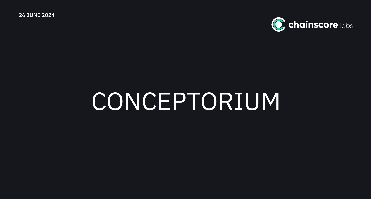
Prasad Kumkar
Project OwnerDefines the overall system architecture, directs MeTTa module development, and oversees integration with Hyperon. He manages milestones and deliverables, enforces code quality standards.
DEEP Connects Bold Ideas to Real World Change and build a better future together.
Coming Soon
Conceptorium introduces a MeTTa/Hyperon framework for automated, creative concept synthesis in AGI. It combines an information-theoretic concept blending engine by merging and filtering features from existing ConceptNodes—with an uncertain Formal Concept Analysis module (supporting fuzzy and paraconsistent logic) to extract robust abstractions from noisy, inconsistent data. A unified pipeline evaluates candidate concepts through LLM-based novelty scoring and PLN-driven surprise detection, ensuring coherence and innovation. Over a 6–9 month schedule, we shall design, develop, integrate, and evaluate, culminating in modules and demos showcasing its autonomous concept-generation capabilities.
This RFP seeks proposals that experiment with concept blending techniques and formal concept analysis (including fuzzy and paraconsistent variations) using the MeTTa programming language within OpenCog Hyperon. The goal is to explore methods for generating new concepts from existing data and concepts, and evaluating these processes for creativity and efficiency. Bids are expected to range from $30,000 - $60,000.
We will finalize the technical design and build proof-of-concept MeTTa modules for Context Extraction, a minimal Contextual Blending engine, and a basic Uncertain FCA engine. This includes defining data schemas in Atomspace, writing MeTTa queries to extract context subgraphs, and implementing simple blend and FCA routines on a toy dataset. Early unit tests will verify end-to-end functionality.
1. Detailed design document with architecture diagrams. 2. Prototype MeTTa code for context extraction, blending, and FCA on a small Atomspace. 3. A set of at least five unit tests demonstrating successful context extraction, blend creation, and concept lattice generation.
$8,000 USD
– Design document reviewed and approved. – Prototype modules execute without errors on toy data. – Unit tests pass with ≥90% coverage.
Building on the prototype, we will fully implement the Contextual Blending engine (including alignment, feature selection, conflict resolution, and information-theoretic scoring) and the Uncertain FCA engine (fuzzy and paraconsistent modes, NextClosure enumeration, and lattice integration) in MeTTa. We’ll also develop the automated evaluation pipeline with symbolic metrics and PLN surprise detection.
1. Production-quality MeTTa modules for Contextual Blending and Uncertain FCA. 2. Evaluation scripts computing entropy reduction, mutual information, and surprise scores. 3. Integration tests showing blending and FCA outputs evaluated and filtered correctly on medium-sized datasets.
$16,000 USD
– Blending engine generates ≥50 candidate blends with valid scoring. – FCA engine produces a concept lattice of ≥30 nodes meeting support thresholds. – Evaluation pipeline filters candidates with an acceptance rate between 50–70% on test data.
Integrate the Conceptorium modules into a running Hyperon instance with Distributed Atomspace. Implement the MeTTa API primitives (concept_blend, run_fca, evaluate_concept) and CI/CD workflows. Conduct full-scale evaluation on benchmark scenarios (synthetic and real-world subsets), measure performance and reasoning impact, and refine thresholds and algorithms based on results.
1. Fully integrated Conceptorium package deployable on Hyperon/DAS. 2. API documentation and example notebooks demonstrating end-to-end usage. 3. Comprehensive evaluation report including performance metrics, quality scores, and reasoning‐efficiency improvements.
$16,000 USD
– End-to-end workflow executes in under 1 s per concept on benchmark hardware. – Reasoning efficiency improved by ≥20% (average PLN proof‐length reduction). – All API functions pass integration tests and are documented.
Reviews & Ratings
Please create account or login to write a review and rate.
Check back later by refreshing the page.
© 2025 Deep Funding
Join the Discussion (0)
Please create account or login to post comments.